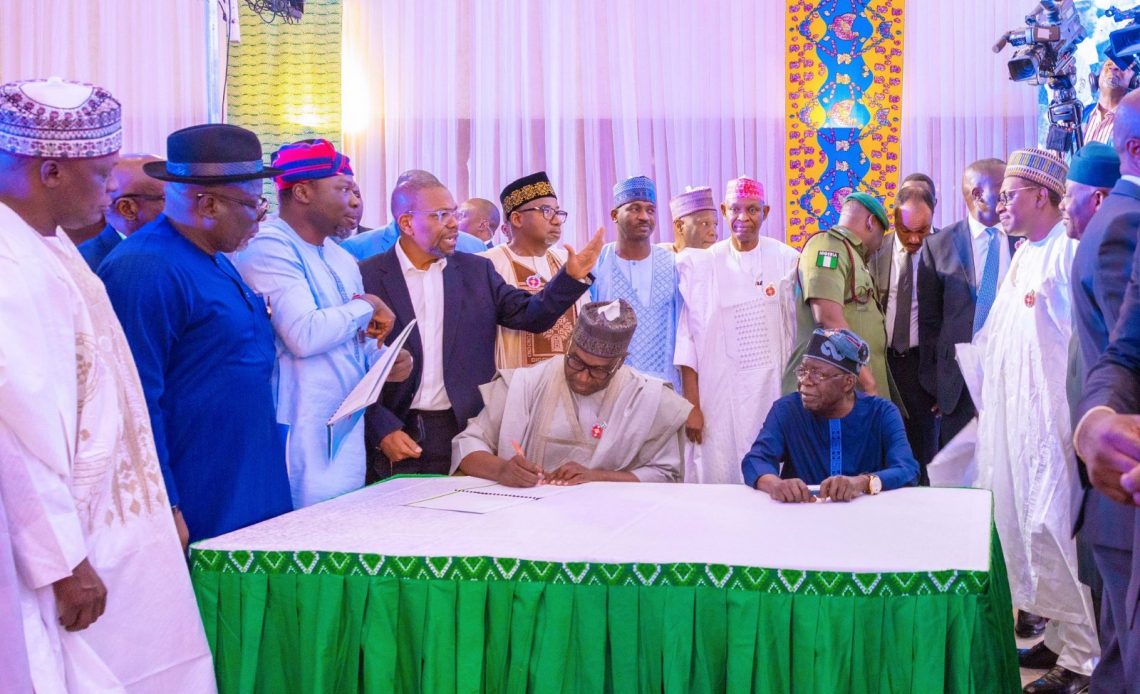Chibuike Alagboso and Safiya Shuaibu Isa (Lead Writers)
The repositioning of Nigeria’s health sector is benefiting from the highest levels of political engagement. The involvement of critical stakeholders with the power and influence to bring about the desired changes, to accelerate the country’s attainment of Universal Health Coverage (UHC) has provided the health sector with a much-needed boost. The Ministry for Health and Social Welfare under the leadership of Professor Mohammad Ali Pate, has made it clear from the onset, that a different approach in the health sector is required to attain the improved health outcomes desired for all Nigerians.
The approach taken involved the Ministry of Health and Social Welfare consulting widely while x-raying in and acknowledging existing challenges in the health sector. In doing so, identifying strategies in the short to medium term to accelerate the journey towards achieving UHC, as well as a health system strengthening efforts in the long term.
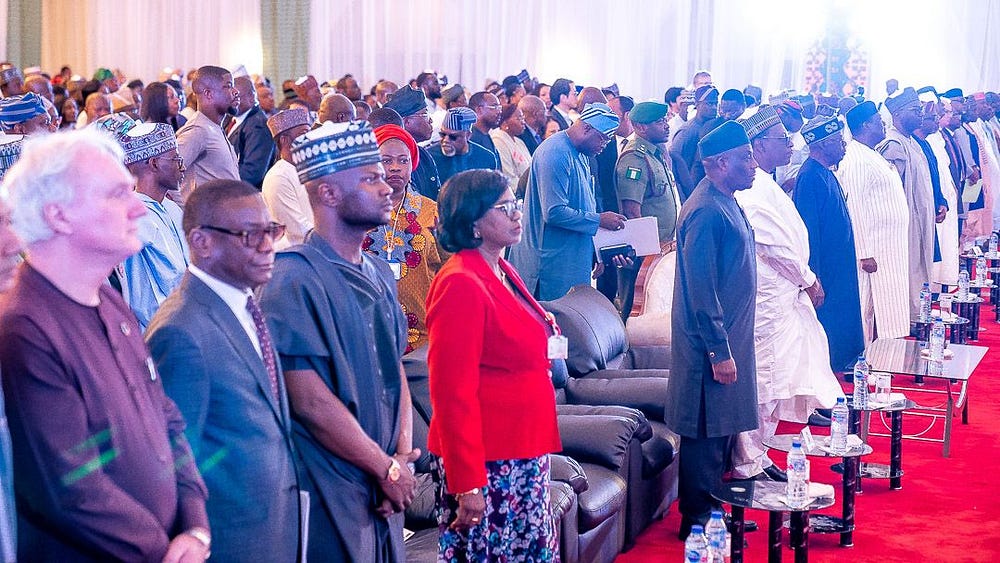
The keynote presentation by the World Bank Country Director for Nigeria, Shubham Chaudhuri, at the 64th National Council on Health discussed the benefits of implementing the sector-wide approach (SWAp) as a panacea to the myriad of challenges impeding progress for improved population health outcomes in Nigeria. The sector-wide approach in health is an established strategy to improve coordination between development partners and the government.
Shubham Chaudhuri shared examples at the National Council for Health meeting in November of countries where SWAp(s) have been deployed. “Countries have succeeded in making tangible progress in improving human development outcomes when an appropriate Compact or Mutual Accountability Framework, customised to the local context, is jointly developed, and agreed to. Between the government (at the federal and sub-national levels) and its international and domestic non-governmental-partners — often referred to as a Sector-Wide Approach (or SWAp), which lays out what each stakeholder is ASKED to do, and what they RECEIVE (the OFFER) in return”.
With the Council’s approval- the highest decision-making body of the health sector- the Ministry of Health and Social Welfare unveiled the Nigeria Health Sector Renewal Investment Initiative on 12th December 2023, while marking UHC Day. The unveiling also involved the signing of the health renewal compact, with coordinated action through a sector-wide approach between the federal government, all the 36 state governors, and development partners working to support Nigeria’s socioeconomic development. Amongst other things, the unveiling signals an understanding that achieving UHC is not a job for the Ministry of Health and Social Welfare alone, said Dr Tedros Ghebreyesus, the Director General of the World Health Organisation. He noted that the move could be a turning point for Nigeria and Africa, referring to it as “ambitious and a model for other countries. If implemented, it will send a powerful message throughout our continent that Universal Health Coverage is possible. It can be done”.
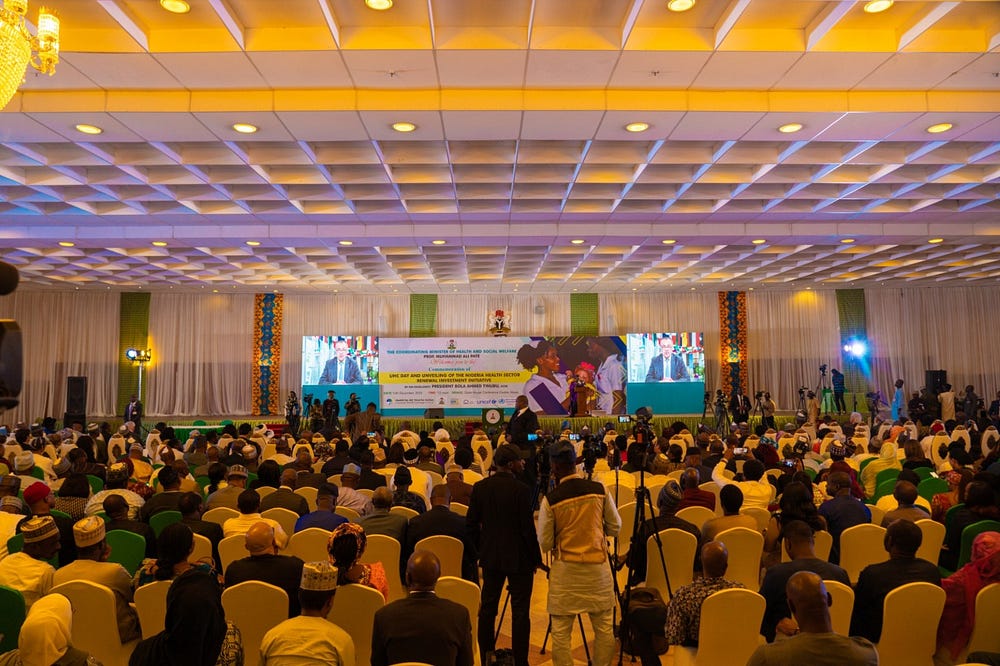
While Nigerians, civil society actors, and other stakeholders anticipate in cautious optimism the full impact of the sector-wide approach, there are three ways it can potentially transform the health sector.
- Better Alignment
Put in simple terms, the sector-wide approach means that everyone working to improve health care for Nigerians, from the sub-national level (led by state governors and their Commissioners for Health) to the federal government and development partners who are providing technical and financial support, are aligned to a common framework. With the pact, the work done by partners should integrate seamlessly into the Ministry of Health and Social Welfare’s strategic blueprint, which seeks to save lives, reduce both physical and financial pain and produce health for ALL Nigerians.
The strategic blueprint has four main pillars:
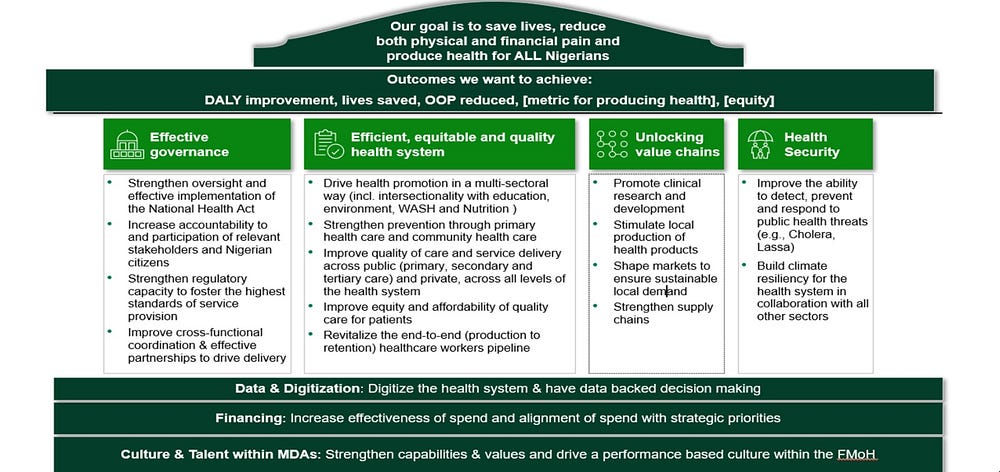
There have been several conversations around ensuring more collaboration in delivering quality healthcare for Nigerians. The sector-wide pact presents a unique opportunity to translate this to action with the involvement of all state governors led by the chairman of the Nigeria Governors’ Forum, His Excellency AbdulRahman AbdulRazaq, the Executive Governor of Kwara State.
However, the renewed investment initiative is not starting from scratch as it is based on existing structures and strategic documents, such as the 2014 National Health Act and the Basic Healthcare Provision Fund (BHCPF).
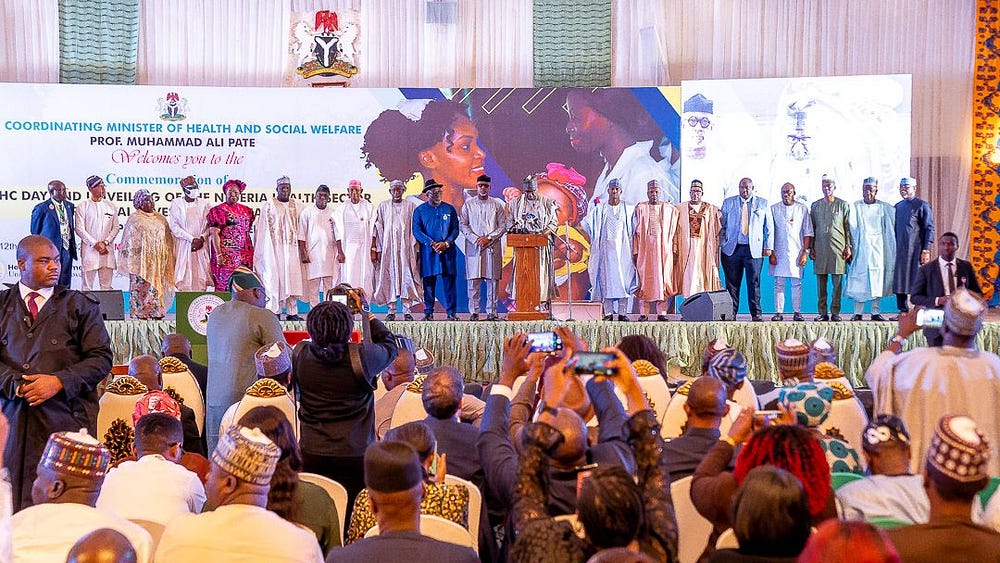
- Increasing Efficiency
As the Coordinating Minister for Health and Social Welfare, Professor Pate highlighted in his keynote address, the challenges faced in achieving Nigeria’s national health objectives include constrained governance systems and structures, with limited accountability, inadequate, inefficient, and inequitable healthcare financing, shortage and poor distribution of human resources for health, limited availability of quality health commodities, insufficient citizens’, and community engagement, and hyper fragmented, poorly coordinated external development assistance.
With partners providing pooled funds, it is easier to channel such resources to the health sector’s reformed four-point agenda. Professor Pate mentioned that the pooled funds would be used to mobilise additional development partners’ (multilateral, bilateral, philanthropic, and private sector) financial resources into a common pool and aligned parallel with the sector-wide approach. “We expect at least $2.5 billion in pooled and non-pooled financing in the period 2024–2026, to be mobilised and channelled to improve our primary health system and achieve results. This represents contributions from external development partners and the Federal Government, expecting that State Governments, where primary health is delivered, will also contribute to the efforts”.
He encouraged states to continue increasing their budget allocation and release funds timely for primary health care services, immunisation and family planning, and to make those allocations and releases public. He also urged them to add their strong voices by participating in community health campaigns and engaging traditional and religious leaders in the states.
- Improving Accountability
With many development partners showing commitment and alignment with the sector-wide approach, a recurring theme in their goodwill messages was how the compact would drive transparency and accountability. In her remarks, Cynthia Rowe, the Development Director Designate for Nigeria at the Foreign, Commonwealth and Development Office (FCDO), said the sector-wide pact will improve alignment and emphasised that the development partners will need to “change the way we do things”.
The Ministry for Health and Social Welfare plans to advance improved transparency and accountability further by committing to establishing a joint coordination and monitoring mechanism in the sector-wide approach, said Professor Pate. He added that the mechanism “will involve establishing a common database of all health development partner engagements with the federal government and all 36 States and FCT, a results scorecard to transparently chart progress regularly (at least annual, semi-annual) and hold each other accountable in bi-directional ways, to achieve desired results or course-correct”.
In addition, Professor Pate mentioned that they would ensure the preparation and presentation of an annual report of the State of Health of Nigerians and the National Health System. This is a provision in the National Health Act, and the report would be presented to Mr President, the National Assembly, Federal Executive Council, and the National Economic Council, as well as the hosting of a national annual joint review of performance, in line with the benchmarks set out in the sector-wide indicator framework. This aligns with the governance and accountability structures championed by the Coordinating Minister of Health and Social Welfare, including his presentation at the inaugural Future of Health Conference in 2015 where he endorsed a more open Federal Ministry of Health with the #OpenMOH hashtag.
While the Nigeria Health Sector Renewal Investment Initiative in parallel with the sector-wide approach can potentially streamline efforts in the health sector, it will not be a walk in the park. It will require strong political commitments and a robust coordinating mechanism, backed by action to translate the four-point health agenda into quality healthcare for all Nigerians. This high-level commitment from the highest political level will signal a strong desire to deliver on the social contract between the government and citizens, as articulated in the Lancet Nigeria Commission.
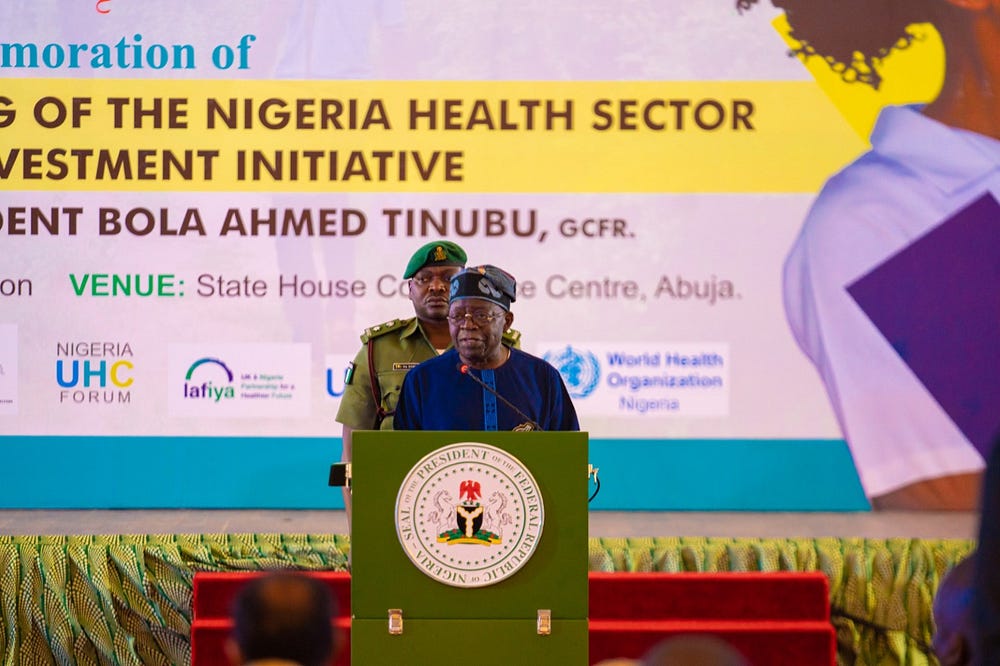
Nigeria Health Sector Renewal Investment Initiative
The sector-wide approach already has political support as Nigeria’s President, Bola Ahmed Tinubu, declared, “Health is back on the front burner” while officially unveiling the renewed investment initiative. The President’s pledge to drive good population health as a tool for attaining economic development is a strong signal that Nigeria might be well on the path to achieving UHC. As President Tinubu declared, “I believe that by increasing investment in health, Nigeria will accelerate its human capital accumulation and development, likely to improve our productivity for current and future development.”.
Achieving UHC is a political choice.


